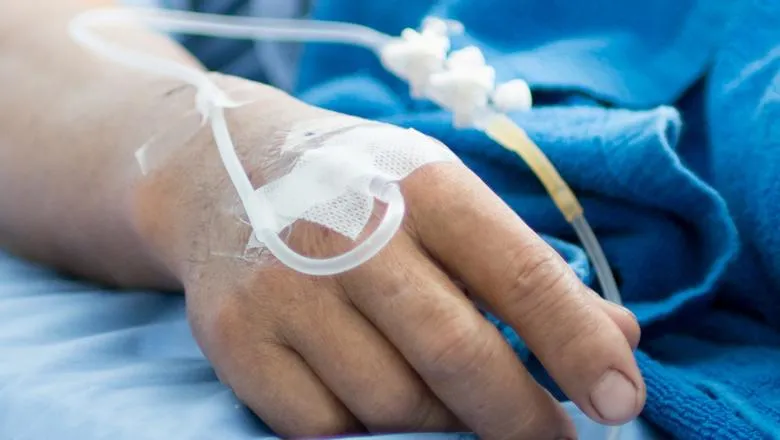Patients with advanced cancer often need to weigh a small, or even uncertain, increase in survival against serious treatment toxicity that can negatively affect their quality of life. They need accurate information about the benefits they can expect, and any uncertainties or evidence gaps around those benefits, so they can make informed decisions that are in line with their preferences and needs.
Dr Davis, Reader in Global Health and Social Medicine
30 March 2023
Cancer drug leaflets lack vital information for patients
Important information outlining the benefits and related uncertainties of cancer drugs is frequently omitted from official prescription drug information sources for clinicians and patients in Europe, an analysis led by King’s has found.

In a study published in the BMJ, researchers say that while medicines regulators are committed to shared decision making and person-centred care, better information on the benefits of medicines is required to help inform treatment decisions – especially for patients with time-limiting conditions such as advanced cancer.
The study, led by Dr Courtney Davis, Department of Global Health & Social Medicine found that official information on anticancer drugs provided to patients and clinicians in Europe often does not include important information on the benefits of the drugs, and related uncertainties.
Cancer patients, particularly those with advanced disease, need high-quality information about their treatment options including about the benefits and risks of drugs available to them.
The peer-reviewed study evaluated written and electronic information on 29 anticancer drugs provided to clinicians, patients and the public through product summaries, leaflets and public summaries. These were drugs approved by the European Medicines Agency (EMA) during 2017-2019.
This information was then compared with information available in regulatory assessment documents (known as European public assessment reports or EPARs), which contain everything required for drug approval.
The researchers found that none of the information leaflets written for patients communicated the benefits patients could expect based on study findings or how the drugs were studied. Less relevant information such as how the drug works in the body was, however, included consistently.
Patients also rarely received information about uncertainties in the evidence, including relevant information such as whether a drug extended survival or improved quality of life.
Information provided to clinicians included details on study designs. However, they rarely included information about scientific concerns raised by European regulatory assessors on the reliability of evidence on drug benefits. Patients and public also rarely received this information.
Dr Davis said: “We need to support patients and their clinicians to make evidence-based decisions about treatments. Our study highlights that more needs to be done to improve how benefits and related uncertainties of anticancer drugs are communicated in regulated information sources in Europe.”
Previous studies have looked at how information on drug risks and adverse effects is communicated to patients, but research on communication of drug benefits is limited.
The researchers acknowledge that their review may not have captured all information about each trial or drug benefits and uncertainties that might be relevant and useful for patients. What’s more, they included only new cancer drugs and it’s not clear whether these findings extend to other disease areas.
Nevertheless, this was a comprehensive review of documents which they say, “identified important shortcomings in the communication of information on drug benefits and related uncertainties in regulated sources.”
It also raises questions about whether this knowledge gap is interfering with shared decision making and whether new ways to present information such as visual representation of data on benefits and harms – used for covid-19 vaccines – could be applied to other types of medicines.

